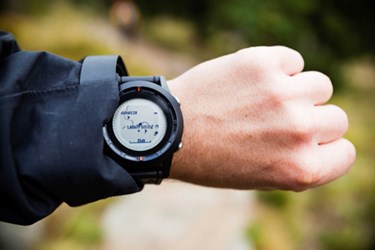Study Finds Wearables Don't Measure Up In Long-Term Weight Loss Efforts

By Christine Kern, contributing writer

Contrary to assumptions, wearables appear to have hindered progress rather than enabled it.
The rise of the wearable device has been seen as a dramatic advance for healthcare monitoring. Used for a wide range of conditions and applications from tracking physical activity and food intake to monitoring vital signs and helping users change their behaviors to encourage weight loss, wearable use rates have skyrocketed.
But one question remains: are they really as advantageous as people believe? A recent study attempted to answer this question in regards to the use of wearables to encourage long-term weight loss, and the findings were a bit surprising.
Published by JAMA, the study found wearable devices did not help a group patients perform better than patients without access to wearable devices in a weight loss intervention program. The results demonstrated patients using wearable devices actually lost an average of 5.29 pounds less than patients using a website to track progress, although both groups lost weight.
“We should not simply tell everyone to go and buy an activity monitor and it will help them to lose weight,” said lead author John M. Jakicic of the University of Pittsburgh department of health and physical activity. “Moreover, we should not send the message these wearable technologies do not help with weight loss — there were some in our study for whom it made a difference. There is so much more we need to learn about how these devices lead to behavior change.”
The study included 471 adults between the ages of 18 to 35 who were overweight to moderately obese and tracked them for 24 months. All participants followed prescribed caloric intake goals and exercise plans. After six months, half of the participants were given wearable trackers to monitor progress, while the other half used a website to do so.
The study concluded, “Among young adults with a BMI between 25 and less than 40, the additional of a wearable technology device to a standard behavioral intervention resulted in less weight loss over 24 months. Devices that monitor and provide feedback on physical activity may not offer an advantage over standard behavioral weight loss approaches.”
While consumers are enthusiastic about the potential for wearable devices to help them track health information they might not actually use them. A 2016 PwC report found cost was the number one factor keeping consumers from purchasing wearable devices, followed by the concern that they might not even use them.
But wearable devices shouldn’t be written off entirely as ineffective due to the results, though researchers think there needs to be a better understanding of the link between wearable device use and behavior changes. One clear finding of the study was patients utilizing less trendy web-based trackers found better results than those who adopted wearables for the same purpose.
This doesn’t mean that activity trackers don’t work said Gary Miller of Wake Forest University Health and Exercise Department in Winston-Salem, North Carolina, who wasn’t involved in the study. “The comparison group is really not the average person out there,” Miller told Reuters Health. “There are so many factors that affect weight loss, it’s difficult to say that these devices aren’t worthwhile or aren’t necessary for people just based on weight loss.”
